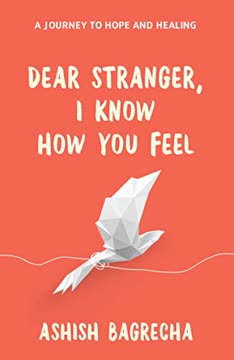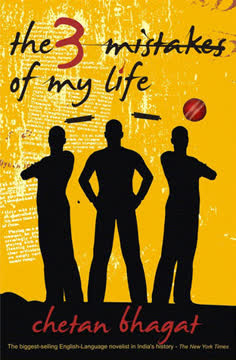Key Takeaways
1. Love and Compassion Begin with Self-Acceptance
"Understand that you are worthy of love and kindness, from yourself and others."
Self-Love Foundation. True compassion starts internally. When we learn to accept ourselves completely - including our flaws, past mistakes, and imperfections - we create a foundation for genuine love and connection with others. Self-acceptance isn't about perfection, but about recognizing our inherent worth.
Compassion Strategies:
- Practice daily positive self-talk
- Challenge negative internal narratives
- Treat yourself with the same kindness you'd offer a close friend
- Acknowledge your struggles without judgment
- Celebrate small personal victories
Transformative Mindset. By understanding that self-love is not selfish but essential, we open ourselves to deeper, more authentic relationships and personal growth. Compassion becomes a powerful tool for healing and understanding, both for ourselves and those around us.
2. Mental Health is a Journey, Not a Destination
"Recovery is a lifelong process, and I will be with you every step of the way."
Continuous Evolution. Mental health isn't about reaching a fixed state of "wellness," but about continuously navigating challenges, learning, and adapting. Each struggle provides an opportunity for growth, self-understanding, and resilience.
Mental Health Principles:
- Embrace vulnerability as strength
- Recognize that setbacks are part of progress
- Seek professional help without shame
- Build supportive communities
- Practice consistent self-care
Holistic Approach. Mental health encompasses emotional, psychological, and social well-being. It requires ongoing attention, compassion, and a commitment to understanding oneself without harsh judgment. The journey is unique for everyone, and there's no universal roadmap.
3. Healing Requires Vulnerability and Courage
"Healing is not a race, but a long voyage that you must embark on."
Brave Vulnerability. True healing demands the courage to confront painful experiences, acknowledge emotional wounds, and be genuinely honest with oneself. It's not about being fearless, but about moving forward despite fear.
Healing Pathways:
- Acknowledge pain without being consumed by it
- Create safe spaces for emotional exploration
- Practice radical honesty with yourself
- Develop healthy coping mechanisms
- Understand that healing isn't linear
Transformative Process. Healing is an act of profound self-love. It requires patience, compassion, and a willingness to sit with discomfort. By embracing vulnerability, we open ourselves to genuine transformation and deeper understanding.
4. Negative Thoughts Do Not Define You
"You are not the sum of all your failures, you're the multiplication of every time you tried."
Thought Management. Negative thoughts are temporary experiences, not permanent definitions of your worth. By recognizing these thoughts as passing mental events, you can develop strategies to manage and redirect them constructively.
Reframing Techniques:
- Challenge negative self-talk
- Practice mindfulness
- Develop a growth mindset
- Focus on learning from experiences
- Cultivate self-compassion
Empowerment Perspective. Your identity is shaped by your actions, resilience, and capacity for growth, not by momentary negative thoughts. By understanding this, you can transform internal narratives from destructive to constructive.
5. Friendship and Family Are Chosen, Not Just Inherited
"You have the ability to create a chosen family of people who will love you unconditionally."
Relationship Dynamics. True connection isn't solely determined by blood relations but by mutual understanding, support, and genuine care. Healthy relationships are built on respect, empathy, and shared values.
Relationship Building:
- Establish clear boundaries
- Communicate openly and honestly
- Prioritize quality over quantity
- Invest in relationships that nurture growth
- Be willing to let go of toxic connections
Supportive Networks. By consciously choosing relationships that uplift and support us, we create environments conducive to personal growth, healing, and mutual understanding.
6. Purpose is Created, Not Discovered
"The purpose of life is to create the meaning of your own life and then bring it to beautiful fruition."
Intentional Living. Purpose isn't a predetermined path but an ongoing process of exploration, creation, and commitment. It emerges through active engagement, curiosity, and willingness to experiment.
Purpose Development:
- Explore diverse experiences
- Reflect on personal values
- Set meaningful goals
- Embrace continuous learning
- Stay open to evolution
Meaning-Making. By understanding that purpose is dynamic and self-created, we liberate ourselves from external expectations and create lives aligned with our authentic selves.
7. Gratitude Transforms Perspective
"Be grateful for life and then use that gratitude to motivate you out of your darkness."
Perspective Shift. Gratitude is a powerful lens that transforms how we perceive challenges, redirecting focus from what's lacking to the abundance present in our lives.
Gratitude Practices:
- Daily appreciation journaling
- Acknowledging small victories
- Expressing thanks to others
- Mindful reflection
- Celebrating personal growth
Emotional Alchemy. By cultivating gratitude, we transmute pain into opportunity, limitation into potential, and struggle into resilience.
8. Second Chances Are Opportunities for Growth
"You deserve this better kind of love. This realistic love that has enabled you to love yourself unconditionally."
Redemptive Potential. Second chances represent more than mere do-overs; they are profound opportunities for radical self-transformation, learning, and recommitment to personal growth.
Growth Strategies:
- Learn from past experiences
- Set clear, compassionate boundaries
- Cultivate self-forgiveness
- Embrace personal accountability
- Remain open to change
Transformative Perspective. By viewing second chances as gifts of renewal rather than marks of failure, we unlock tremendous potential for personal reinvention.
9. Kindness Starts with Understanding Yourself
"Be gentle with yourself, and allow yourself to be flawed in every way that makes you you."
Self-Compassion Foundation. Genuine kindness begins with deep self-understanding, acceptance of imperfections, and a commitment to personal growth without harsh judgment.
Kindness Principles:
- Practice non-judgmental awareness
- Treat yourself with respect
- Acknowledge emotional complexity
- Develop emotional intelligence
- Extend compassion universally
Relational Wisdom. By cultivating kindness towards ourselves, we naturally become more empathetic and understanding towards others.
10. Dreams Require Persistent Action
"Dreams never die. They are simply leaving you when they grow tired."
Dream Manifestation. Dreams aren't passive wishes but active commitments requiring consistent effort, adaptability, and unwavering belief in one's potential.
Dream Pursuit Strategies:
- Break goals into actionable steps
- Maintain flexibility
- Cultivate resilience
- Learn continuously
- Stay authentically motivated
Visionary Approach. By treating dreams as dynamic, evolving aspirations, we create space for unexpected opportunities and personal growth.
11. Success is Personal and Multidimensional
"Success is whatever you define it to be. Celebrate it."
Individualized Success. Success transcends external metrics, encompassing personal growth, emotional well-being, relationships, and alignment with individual values.
Success Dimensions:
- Emotional fulfillment
- Personal growth
- Meaningful relationships
- Authentic self-expression
- Continuous learning
Holistic Achievement. By redefining success on personal terms, we liberate ourselves from comparative benchmarks and create more meaningful, satisfying life experiences.
Last updated:
FAQ
1. What is "Dear Stranger, I Know How You Feel" by Ashish Bagrecha about?
- A collection of healing letters: The book is a series of 30 heartfelt letters, each addressing a different emotional struggle or aspect of mental health, such as pain, emptiness, anxiety, loss, and hope.
- Personal journey and empathy: Ashish Bagrecha draws from his own battles with depression and anxiety, offering understanding and solidarity to readers who feel lost or alone.
- Focus on self-love and recovery: The letters encourage self-acceptance, healing, and the pursuit of happiness, serving as daily affirmations and guidance for those struggling with their mental well-being.
- Universal themes: The book covers a wide range of human experiences, including love, family, friendship, dreams, failure, and the search for purpose, making it relatable to a broad audience.
2. Why should I read "Dear Stranger, I Know How You Feel" by Ashish Bagrecha?
- Support for mental health: The book offers comfort and understanding for anyone experiencing emotional pain, loneliness, or mental health challenges.
- Accessible, daily guidance: With 30 letters, readers can take in one message a day, making it a practical tool for gradual self-healing and reflection.
- Empathetic and non-judgmental tone: Bagrecha writes as a compassionate friend, making readers feel seen, understood, and less alone in their struggles.
- Actionable advice: Each letter provides gentle suggestions and encouragement for self-care, reaching out, and personal growth.
3. What are the key takeaways from "Dear Stranger, I Know How You Feel"?
- You are not alone: The book repeatedly reassures readers that their feelings are valid and shared by many, reducing the sense of isolation.
- Healing is a journey: Recovery from pain, loss, or mental health struggles is a gradual process that requires patience, self-compassion, and support.
- Self-love is essential: Embracing and caring for oneself is a recurring theme, seen as the foundation for happiness and resilience.
- Hope and positivity matter: Even in the darkest times, the book encourages holding onto hope, seeking light, and believing in the possibility of better days.
4. How is "Dear Stranger, I Know How You Feel" by Ashish Bagrecha structured?
- 30-day format: The book is organized into 30 days, each focusing on a specific topic or emotion, such as pain, emptiness, anxiety, insomnia, heartache, loss, and more.
- Letter and poem for each day: Every day begins with a short poem, followed by a letter addressed to a "stranger," offering empathy and advice.
- Progressive journey: The sequence of letters moves from addressing deep pain and darkness toward themes of hope, healing, purpose, and happiness.
- Standalone yet interconnected: Each letter can be read independently, but together they form a cohesive journey of emotional healing.
5. What is Ashish Bagrecha’s approach to healing and self-care in "Dear Stranger, I Know How You Feel"?
- Empathy and shared experience: Bagrecha writes from his own struggles, making his advice relatable and authentic.
- Gentle encouragement: The letters avoid harsh directives, instead offering gentle nudges to reach out, express feelings, and take small steps toward healing.
- Practical suggestions: The book recommends journaling, meditation, seeking support, and practicing gratitude and self-kindness as tools for recovery.
- Acceptance and patience: Readers are encouraged to accept their emotions, be patient with themselves, and understand that healing is not linear.
6. What are the main concepts and themes explored in "Dear Stranger, I Know How You Feel"?
- Mental health struggles: Topics like pain, emptiness, anxiety, insomnia, heartache, loss, and self-harm are addressed with compassion and understanding.
- Identity and self-worth: The book explores issues of identity, self-awareness, and the importance of loving oneself.
- Hope and resilience: Letters on hope, patience, forgiveness, and second chances emphasize the power of resilience and the possibility of renewal.
- Relationships and connection: Family, friendship, love, and kindness are highlighted as sources of support and healing.
7. How does "Dear Stranger, I Know How You Feel" by Ashish Bagrecha address pain, emptiness, and anxiety?
- Pain: The book uses metaphors like drowning and reaching the shore to describe emotional pain, encouraging readers to acknowledge their suffering and seek support.
- Emptiness: Bagrecha validates feelings of emptiness and detachment, urging readers to reconnect with their soul through mindfulness, creativity, and self-love.
- Anxiety: The letters personify anxiety as a "monster," offering solidarity and practical steps to manage it, such as reaching out for help and taking gradual steps toward facing fears.
- Overall approach: Each topic is met with empathy, actionable advice, and reassurance that these feelings are temporary and surmountable.
8. What advice does Ashish Bagrecha give for dealing with loss, heartache, and self-harm in "Dear Stranger, I Know How You Feel"?
- Loss: Grieving is presented as a personal, non-linear process; readers are encouraged to feel their emotions fully and seek support without shame.
- Heartache: The book acknowledges the physical and emotional pain of heartbreak, advising acceptance, self-care, and allowing time for healing.
- Self-harm: Bagrecha addresses self-harm with directness and compassion, urging readers to reach out, talk to someone they trust, and find healthier ways to cope with pain.
- Seeking help: Professional support, such as therapy or counseling, is recommended for those struggling with overwhelming emotions.
9. How does "Dear Stranger, I Know How You Feel" by Ashish Bagrecha define and encourage self-love and self-awareness?
- Self-love as foundation: The book asserts that self-love is not selfish but necessary for healing and happiness.
- Practical self-care: Readers are encouraged to treat themselves with the same kindness and compassion they offer others, through small daily acts and positive self-talk.
- Self-awareness journey: Bagrecha suggests reflecting on one’s feelings, listening to intuition, and making intentional choices to better understand and care for oneself.
- Overcoming self-criticism: The letters challenge negative self-perceptions and promote celebrating one’s uniqueness and achievements.
10. What role do hope, purpose, and dreams play in "Dear Stranger, I Know How You Feel" by Ashish Bagrecha?
- Hope as a lifeline: The book emphasizes that hope can be rekindled even in despair, and is essential for moving forward.
- Purpose and meaning: Readers are encouraged to seek and create their own purpose, understanding that it may change over time and is unique to each individual.
- Dreams and aspirations: Bagrecha advocates for holding onto dreams, taking small steps toward them, and not letting practicality or fear extinguish one’s aspirations.
- Inspiration and motivation: Stories and metaphors are used to inspire readers to believe in their potential and pursue what brings them joy.
11. What are the best quotes from "Dear Stranger, I Know How You Feel" by Ashish Bagrecha and what do they mean?
- "Happiness is a daily choice and not an impossible dream." – Reminds readers that happiness is attainable through daily effort and mindset, not a distant or unattainable goal.
- "You’re not the sum of all your failures, you’re the multiplication of every time you tried." – Encourages valuing persistence and effort over focusing on mistakes or setbacks.
- "The world would be much better and more beautiful and people would be less lonely and sad, if instead of asking, ‘how are you?’ we said, ‘I care for you.’" – Highlights the importance of genuine kindness and connection in healing loneliness.
- "We must remember that we are mere travellers of life on our journey home, that nothing will matter in the end for everything is chaos except love." – Suggests that love is the only enduring value in life, above all chaos and impermanence.
12. How can readers use "Dear Stranger, I Know How You Feel" by Ashish Bagrecha as a tool for personal growth and healing?
- Daily reading practice: The 30-day structure allows readers to absorb and reflect on one letter each day, fostering gradual healing and self-discovery.
- Journaling and self-reflection: The book encourages keeping a journal to process emotions, track progress, and set intentions for growth.
- Starting conversations: Readers are urged to open up to loved ones or professionals about their struggles, breaking the silence around mental health.
- Sharing and community: Bagrecha invites readers to share the letters with others who may need support, creating a ripple effect of empathy and understanding.
Review Summary
Dear Stranger, I Know How You Feel receives mixed reviews, with an average rating of 3.86 out of 5. Many readers find comfort and healing in the book's 30 letters addressing various emotional struggles. They appreciate the relatable content and soothing tone. However, some critics argue the advice is superficial and repetitive, potentially causing more negativity. The book's poems and overall concept are praised, but its effectiveness in providing practical solutions is debated. Some readers consider it a valuable companion during difficult times, while others find it lacking in depth and actionable advice.
Similar Books
Download PDF
Download EPUB
.epub digital book format is ideal for reading ebooks on phones, tablets, and e-readers.















